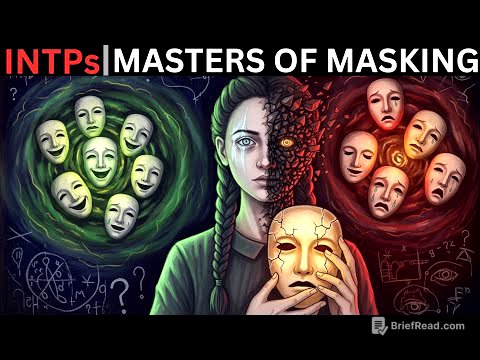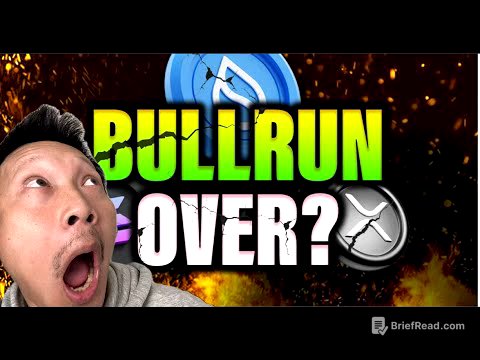TLDR;
This video provides a comprehensive guide on how to succeed in an executive-level job interview. It covers key interview questions, provides top-scoring example answers, and offers essential tips to stand out. The guide emphasizes the importance of strong leadership skills, strategic thinking, and effective communication.
- Preparing for executive interview questions is crucial for success.
- Using specific examples and demonstrating leadership skills can significantly improve your chances.
- Connecting with professionals and utilizing available resources can further aid in your preparation.
Introduction [0:00]
Richard McMahon from PassMyInterview.com introduces a tutorial designed to help individuals pass executive-level job interviews. The tutorial will cover a list of executive interview questions, provide unique, top-scoring answers to difficult questions, offer important tips on how to stand out, and provide access to further resources, including slides and answers. He encourages viewers to connect with him on LinkedIn, subscribe to the channel, and like the video.
Question 1: Tell Me About Yourself [1:18]
The first question to prepare for is "Tell me about yourself." The way you communicate and the words you choose can determine success or failure. A strong start involves giving an in-depth, confident answer that shows you are the right person for the executive role. An example answer includes describing yourself as a strong leader with the necessary skills and experience to make an immediate and lasting impact, highlighting career achievements such as implementing change, increasing sales through innovative marketing, and improving customer service and operational efficiency. The answer emphasizes a proven track record and leadership skills as a strong match for the industry.
Question 2: Why Do You Want to Work for Us as an Executive? [3:43]
The next question is "Why do you want to work for us as an executive?" Provide three genuine and valid reasons that demonstrate you have carefully considered working for the organization. An example answer includes wanting to work for the organization because of its impressive track record and ambitious plans, its commercial responsibility, and its outstanding reputation. The answer highlights the desire to be part of an organization focused on growth, improvement, and innovation, and one that takes environmental and social responsibility seriously.
Question 3: What's Your Style of Leadership? [5:41]
Another question is "What's your style of leadership?" It's important to be able to draw upon numerous styles as required. An example answer includes describing your style as authoritarian when responsible for achieving key objectives, making decisions based on the organization's best interests, and sharing your vision. It also includes utilizing a democratic style when there is scope to take more time with decisions and seeking input from others. Additionally, describing your style as transformational, advocating for change to meet customer needs, and encouraging others to view change as an important resource.
Question 4: What Qualities Are Needed to Be an Effective Company Executive? [7:27]
The next question is "What qualities are needed to be an effective company executive?" This question assesses your understanding of the executive role and whether you have the qualities needed to perform to a high standard. An example answer includes being a strong and decisive leader, possessing strategic thinking skills, and having the ability to think holistically. It also includes strong communication, interpersonal, and influencing skills, and presenting yourself as a positive role model who insists on the highest standards.
Question 5: Tell Me About a Time When You Demonstrated Leadership Skills [9:11]
Another question is "Tell me about a time when you demonstrated leadership skills." Leading by example and being a strong and confident leader are essential traits for an executive. An example answer includes a situation where you intervened in a meeting to prevent the use of substandard product parts, emphasizing the importance of maintaining the company's reputation and values, even if it meant spending more money. This demonstrates the confidence to make the right decisions and prioritize the organization's success.
Question 6: How Would You Answer Questions from the Media During an Organizational Crisis? [10:38]
The final question covered is "How would you answer questions from the media during an organizational crisis?" This question assesses your ability to communicate in a way that protects the organization and portrays it positively. An example answer includes always being professional, preparing in advance, and making a list of key points. It also includes being transparent, ensuring the message is simple and consistent, never playing the blame game, taking responsibility for mistakes, using strong quotes, avoiding jargon, sticking to the facts, and responding to criticism promptly and sensitively.
Further Resources and Conclusion [12:07]
The video directs viewers to PassMyInterview.com to download a full set of 27 executive interview questions and top-scoring answers in a PDF guide. It also provides additional tips to help pass executive interviews. The presenter encourages viewers to connect on LinkedIn, subscribe to the channel, and like the video, wishing them the best in their executive interview.
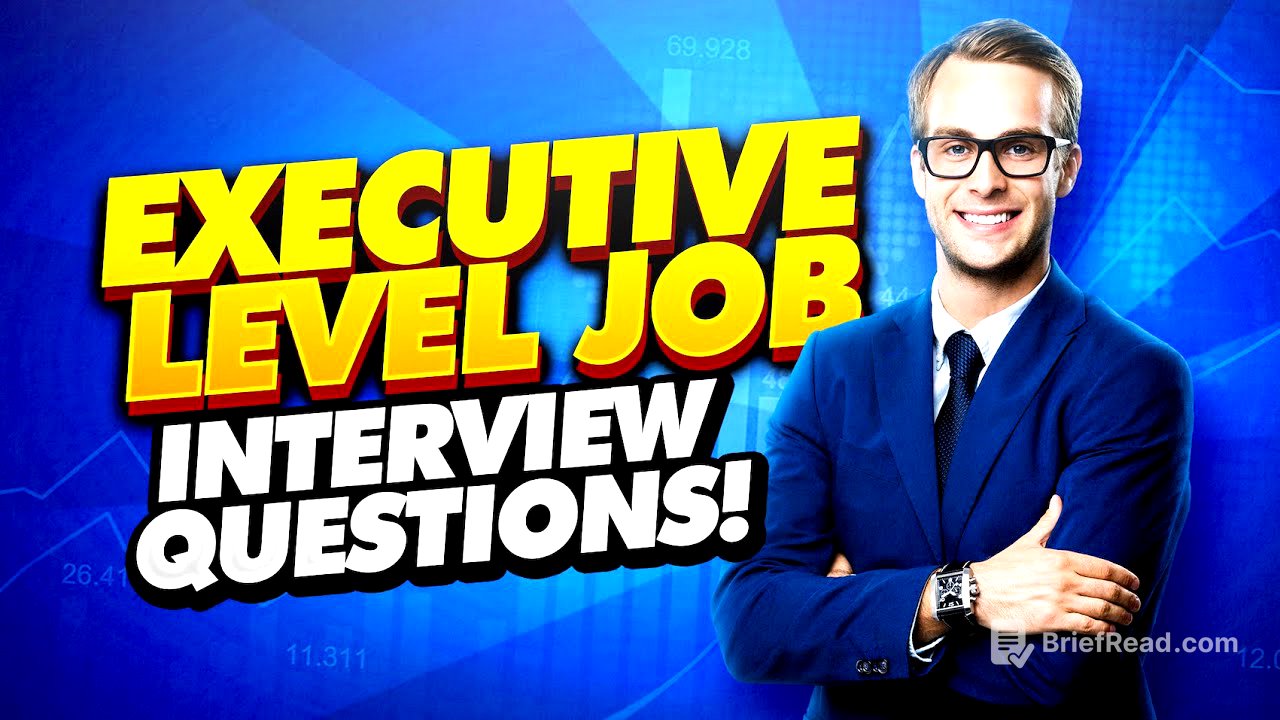
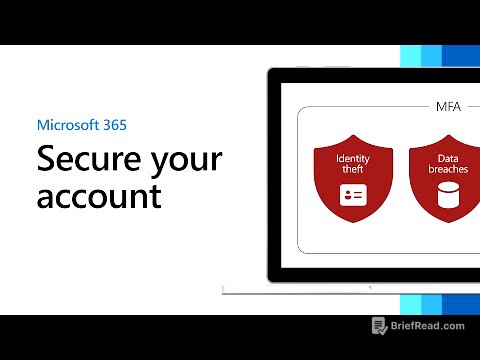

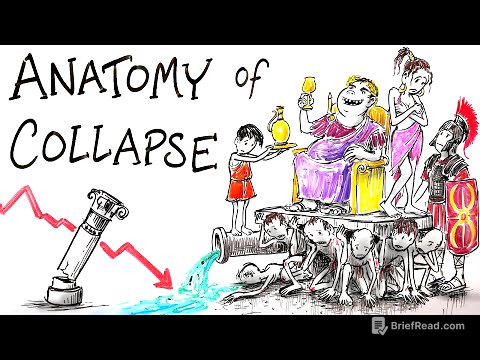

![So You Want to Be an ANESTHESIOLOGIST [Ep. 12]](https://wm-img.halpindev.com/p-briefread_c-10_b-10/urlb/aHR0cDovL2ltZy55b3V0dWJlLmNvbS92aS96OGgxbVJxSTNfSS9ocWRlZmF1bHQuanBn.jpg)

